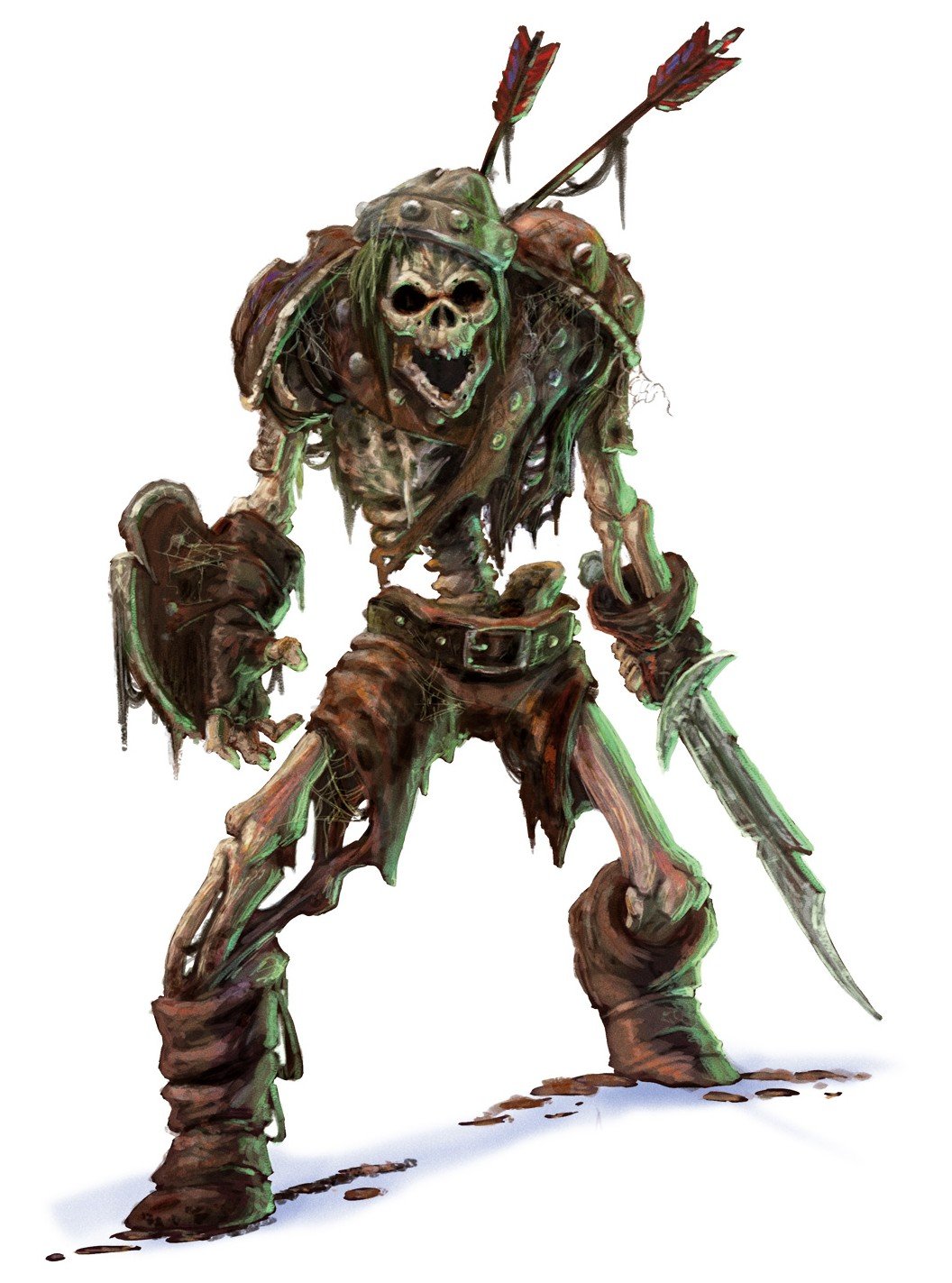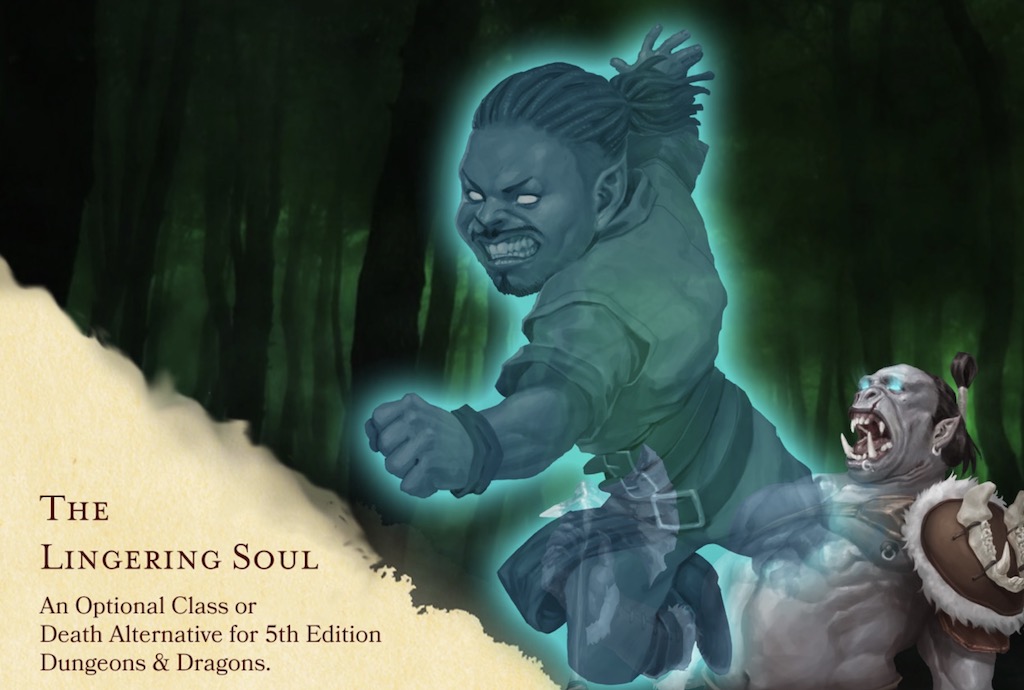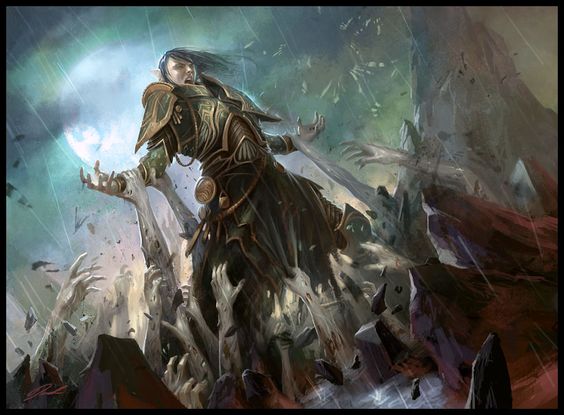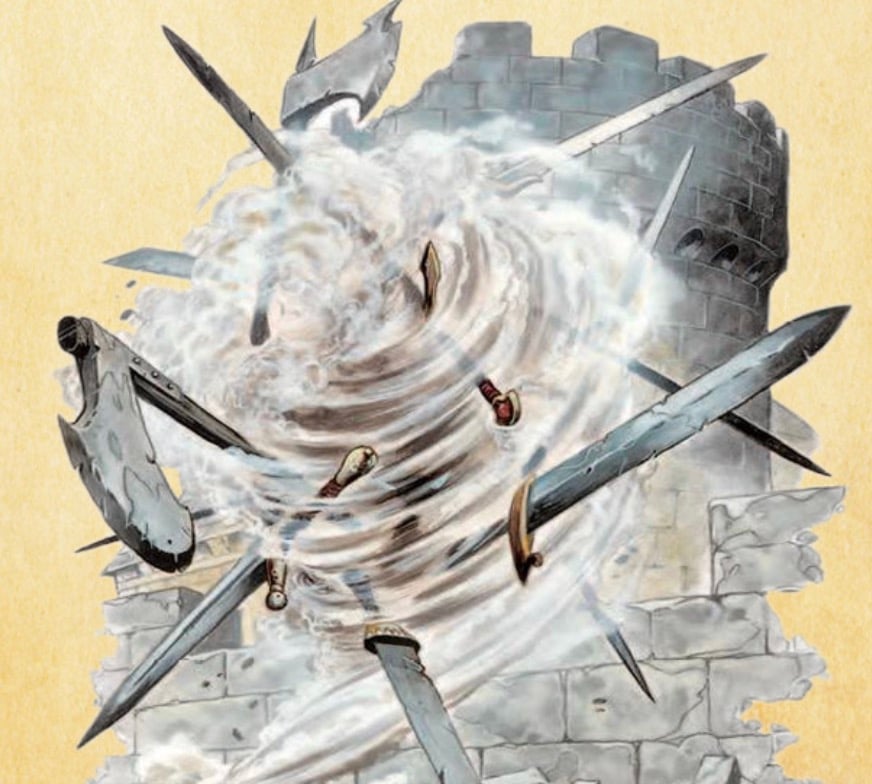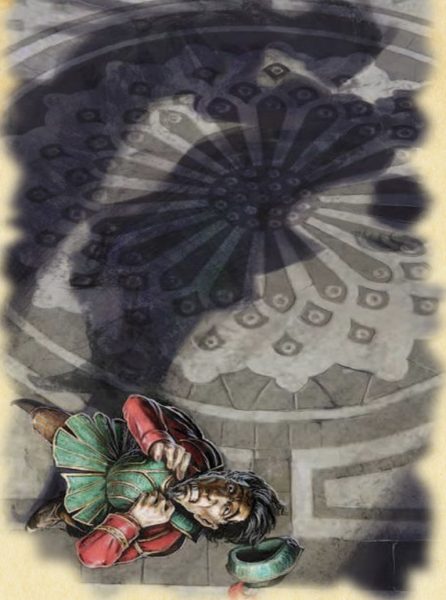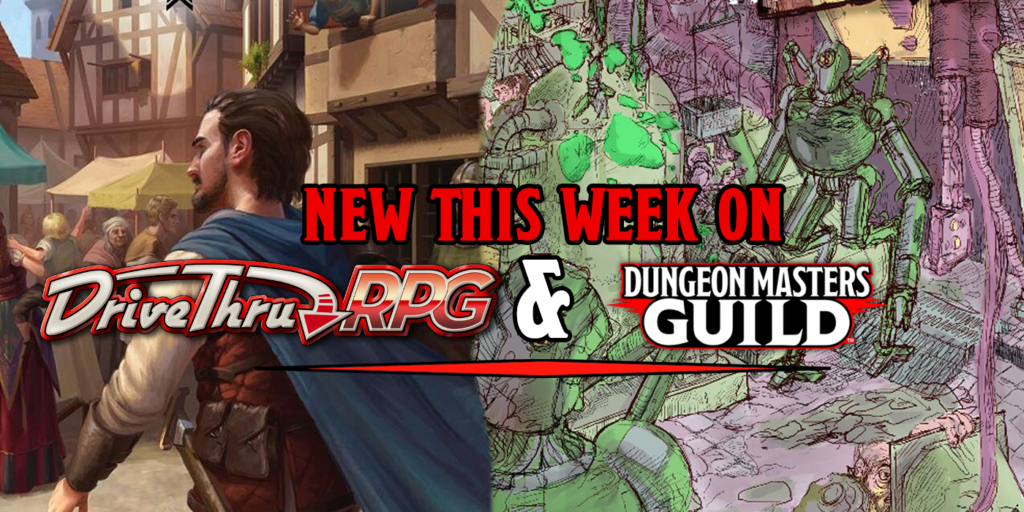D&D: Matt Mercer’s Lingering Soul, Revisited
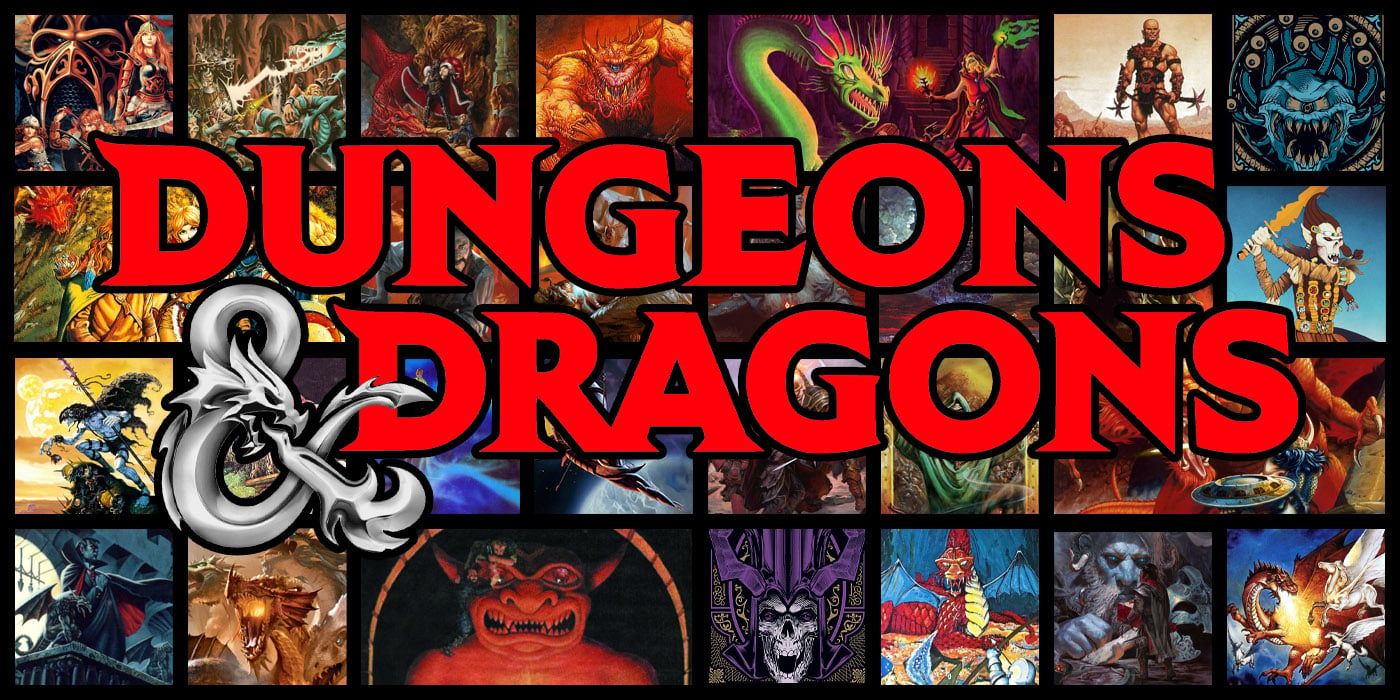
Matt Mercer’s custom class that lurks between life and death has a fresh coat of paint on the DMs Guild. Let’s check it out.
With a new update on the books and the Lingering Soul class marked pay-what-you-want on the DMs Guild, it’s time to once again revisit that shadowy border between life and death. Come look away the revised Lingering Soul. This class is all about playing a revenant, vengeful spirit in the case of character death.
We’ve talked about death in campaigns before and how it doesn’t have to be the end. As it happens, Matt Mercer, GM extraordinaire, and also the voice of many people you love, has designed a class to help keep characters who die in the game long past their expiration date.
Because sometimes, you don’t want to be a skeleton raised by the party’s necromancer.
This is a really cool idea, it lets you keep your game moving without having to derail everything while players go off and find what they need to resurrect a character. It also means that you don’t have to just hand wave a resurrection either, or if you want to play in a game where it’s difficult, you can keep an old character around long enough for it to make sense to run into their replacement.
Even if you’re playing in a high fantasy game where there are resurrection clinics in every city, it’s a good way for characters to stick around a little–even villains your party’s killed–and continue to be a part of the ongoing events. There’s a lot to sink your teeth into narratively here, and the class is pretty solid as well, pairing some pretty cool possession mechanics with three different subclass flavors.
The Lingering Soul is a class that you take on once your character has been cut down. Lingering on as a ghostly spirit who thirsts for vengeance or to right some wrong, or because there’s unfinished business that you need to take care of:
Mortality. All who draw breath fear the icy grip of death, the promised end. It is the primal fear that drives much of history, and the promise of a restful afterlife brings weight to the influence of any temple.
Your afterlife, unfortunately, is not so restful. You’ve been cut down, left to die, and your spirit now remains, unable to pass on when so filled with fear, with anger, with questions. Binding to whatever symbol will anchor you to the world of the living, you feel the hunger for answers rival your need for vengeance as you learn to control this ethereal existence thrust upon you.
AdvertisementWith the aid of still-living allies, you continue the pursuit of your goals using your spectral gifts to frighten, manipulate, and control those who would stand in your way. Leaping from body to body, wrestling control from your foes as you send them to a worser fate than yours, you continue to fight for another chance at life… or embrace your ghostly talents to do what living mortals cannot, ever fighting the cold and hungry urges that encompass the curse of undeath.
This is a complicated class the DM can offer as a choice upon character creation, or offered by the DM when a player character death is surrounded by enough violence or mystery to cause the soul to cling to the mortal world. It can allow the continued play of a beloved character when resurrection is unavailable, or as a reward for a party seeking to restore the narrative lost when a central figure has fallen. Players should not be able to select to become a Lingering Soul upon death; it should be offered with good reason, and it should be an option granted sparingly.
Presented as a class the DM can offer on character creation, or as an alternative to a character dying, there are a few abilities that make the class work, coupled with others that help power the class. It centers around being a mostly incorporeal ghost that is bound to some object or creature indefinitely. For the vast majority of levels, the Lingering Soul is bound to their object permanently, never able to be more than 150 feet from their bound target (the target doesn’t have to be willing). If the object or creature moves, you’re dragged along with them. As of the update, this change can’t be made until your target dies or is destroyed.
And for the purposes of narrative structure, I can think of nothing better than having a bound spirit be tied to one of the other characters in the party, in particular if there’s been one person who has a particularly…vivid relationship with the slain party member. Nothing like two rivals/enemies being unable to be apart from one another and being forced to work together to overcome a common obstacle. What lessons will they learn from each other?
Doubly so because the slain character is mostly unable to interact with the physical world while in spectral form. They can pass through creatures, but can not carry objects or wear equipment. They gain a number of immunities, and can make some limited attacks, depending on your subclass, but mostly they rely on the kindness of strangers. Or at least the presence of strangers.
Because mostly the class works via possession. Lingering Souls possess a creature and ride along with it–the creature acts as normal on their turn, but you can force a creature to make an attack against a target of your choice, you can make them dash, or take the dodge action–and as you grow more powerful you can make them do more things, including make Charisma Checks as you make them speak, you can also stealthily hide the fact that you’ve possessed someone, and you can make creatures you possess more vulnerable to your party’s attacks.
As for subclasses, players select one of three Phantom Callings. There’s Poltergeist, which as you might suspect revolves around moving things telekinetically. This lets you attack a foe, but also lets you hurl foes into one another at higher levels. It means even when you’re in spectral form you’ll always have something to do.
There’s the Wraith, which is a dark, necromantic like path which is all about draining the life from your foes and using it to sustain and power your own form. Of particular interest is that you can possess someone and impart your disadvantages on them (things like sunlight sensitivity) or later on, creating Spectres from slain foes.
Finally there’s the Spirit Guardian, which, no joke, basically turns you into a possessing spirit that takes on aspects of the spell Spirit Guardians. It’s the least mechanically complex of the three, which isn’t a bad thing, though it does make you feel doubly dependent on another character/possessing creature being around. Take this one if you want to possess your party members and make them better/protect them.
Or…be a wraith and proactively protect your party by killing everything that stands in your way. The choice is yours.
Still, this is an incredibly cool idea, as I keep mentioning, and well worth the price of “pay what you want.” I recommend checking it out and think that this is a fantastic addition to your campaign. Surprise your players with it when they think they’ve lost something, you’ll make an incredibly memorable moment.
Updated features:
- Tied Secondary Saving Throws to your Phantom Calling choice for balance.
- Clarified that Spirit Binding is indefinite once bound, only changing when the bound creature or object is destroyed.
- Added clarification on some rules regarding Consume Enchantment.
- Added clarification on when Pervade the Fallen ends and destroys the corpse.
- Replaced lvl 19 Spectral Transformation with the standard Ability Score Improvement and added it as a Spirit Guardian lvl 15 ability.
- Altered “Ravage Soul” for balance purposes (closer to as intended).
- Adjusted damage on the Wraith’s Scything Claw.
- Lessened the Spirit Guardian’s Savior Spirit aura to balance with having a new lvl 15 Ability.
Check Out the Lingering Soul on the DM’s Guild
This class really sticks with you…

